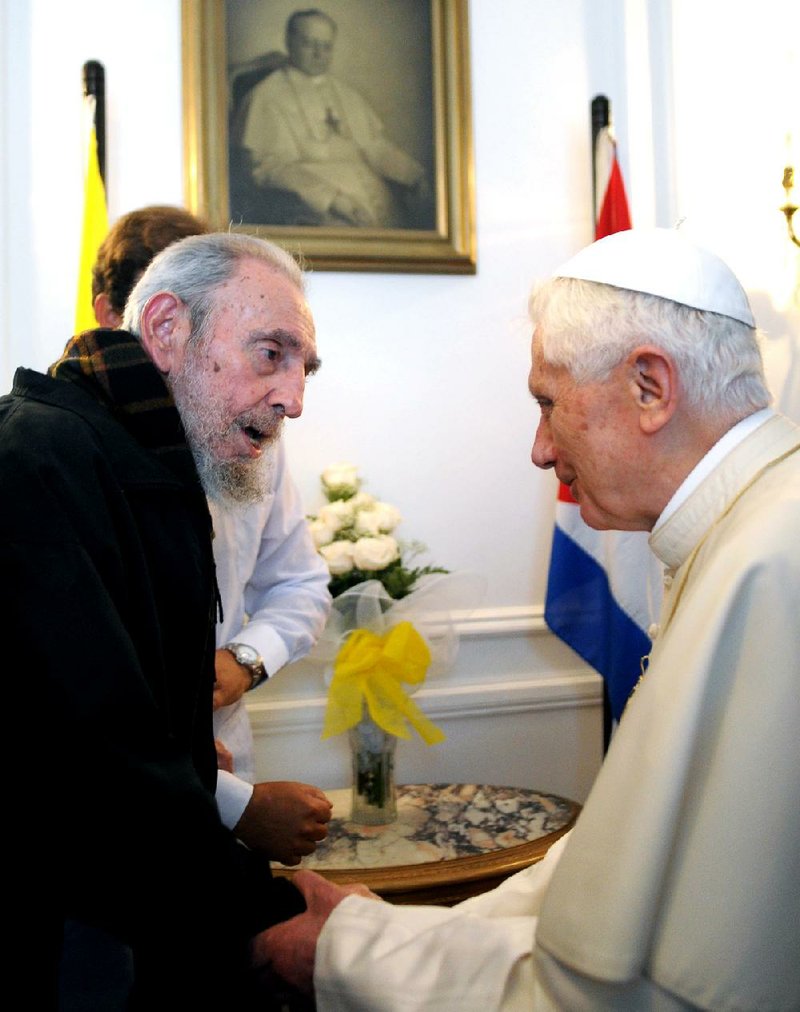HAVANA — Beneath looming images of Fidel Castro, Che Guevara and the Virgin Mary, Pope Benedict XVI on Wednesday stood in Revolution Square, the heart of the Castro government, and issued a call for “authentic freedom” in what is consistently ranked as one of the world’s most repressive nations.
“The truth is a desire of the human person, the search for which always supposes the exercise of authentic freedom,” Benedict said in his homily at an outdoor Mass, a line greeted by smiles from some in the crowd. “Many, however, prefer shortcuts, trying to avoid this task.”
The Mass was the culmination of a three-day visit to Cuba meant to shore up support for the Roman Catholic Church on the island. With President Raul Castro sitting in the front row — and a day after a top Cuban official said that Cuba would not pursue political change any time soon — Benedict also decried “those who wrongly interpret this search for the truth, leading them to irrationality and fanaticism; they close themselves up in ‘their truth,’ and try to impose it on others.”
During his visit, the pope’s message was clear: Spiritual formation can and must guide political formation, the faithful can be “at once a citizen and a believer,” and religious freedom can foster other freedoms.
“This is why the church seeks to give witness by her preaching and teaching,” he said, “both in catechesis and in schools and universities.”
The visit has highlighted the complex dual role of the pope as a spiritual guide and a political figure. After Mass on Wednesday, the pope had an “animated dialogue” with Fidel Castro at the Vatican Embassy, the Vatican spokesman, the Rev. Federico Lombardi, told reporters. He said the meeting was marked by “cordiality” and that Castro, whom Lombardi referred to as “Comandante Castro,” had asked the pope a range of questions, including what a pope does.
The two had made some jokes about their age, with the pope telling Castro, “‘I’m old, but I still know how to do my job,”’ Lombardi said.
Castro had presented two of his children to Benedict, Lombardi said. For his part, the pope spoke about his joy to be in Cuba and the warm reception he had received, Lombardi said.
The State Department said it had conveyed a message to the pope through the Vatican nuncio in Washington, asking him to press for the release of Alan Gross, a U.S. contractor imprisoned in Cuba for distributing satellite equipment. Lombardi said that “humanitarian issues” had been raised in the course of the pope’s meetings in Havana but said he could not give further details.
On Wednesday, Amnesty International said there had been reports that the Cuban government had arrested dissidents and blocked their cell phones before the Mass, and called on the pope to denounce such actions.
The Vatican has said that in his short visit, the pope did not meet with any individual groups, in the church or outside, despite requests from human-rights groups that he meet with Cuban dissidents. In recent years, the Catholic Church in Cuba has helped broker the release of political prisoners.
Front Section, Pages 5 on 03/29/2012
